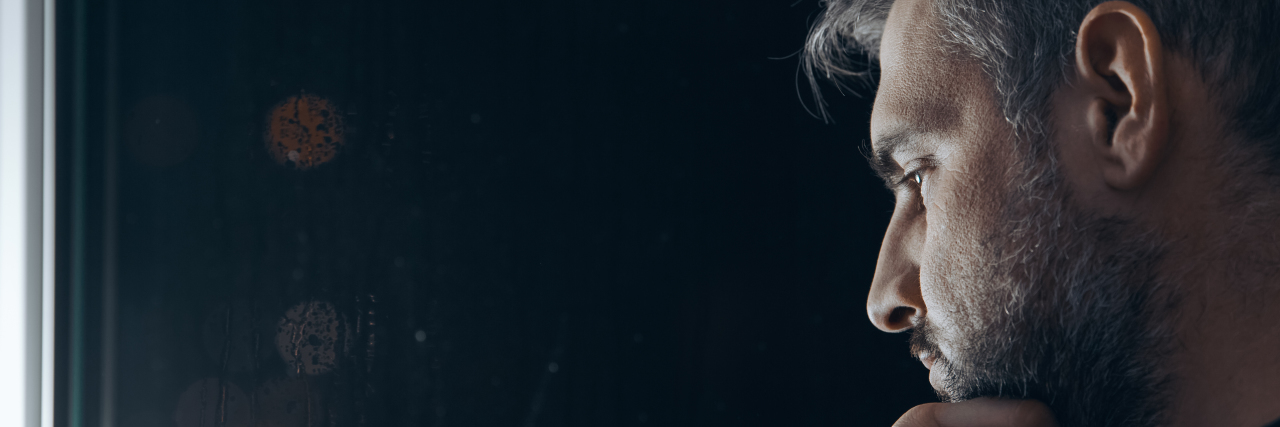I am disabled.
It took me far too long to accept that.
Of course, I’ve been disabled in the eyes of the United States Social Security Administration since my paperwork went through in early 2015, but that doesn’t mean I’ve viewed myself as such that whole time. Our society tends to define disability by how (un)productive or conventionally useful — or inconvenient — you are to others. By those standards I certainly fit the bill. For more than three years now I haven’t been able to work a regular job due to my intense, ongoing treatment for desmoplastic small round cell tumors, an extremely rare and deadly cancer. That doesn’t mean I accepted “disabled” as part of my identity right away, though.
I needed time to figure that out, to understand that a disability can look a hundred different ways for as many different people. I needed time experiencing disability for myself to realize that disabilities are a lot more complicated than I ever could have imagined when I was fully able-bodied. My own disability is weird and ever-changing. While on a clinical trial last October I felt great. My wife and I used that time to go on an incredible road trip to over a dozen national parks and monuments. For that month or so I was not physically disabled. I even started looking for work. Then I got a bad scan result and went back on debilitating chemotherapy again.
Now, on my worst days when my hemoglobin and other blood counts are lowest from intense chemotherapy, my vision fades out, my heartbeat pounds in my ringing ears, and I have to sit a moment to recover just from walking slowly up a single flight of stairs. By the end of my week off I’ve recovered enough that I can consistently get 6,000 steps a day on my Fitbit, for a couple days at least, until I start the next round. And that’s just on my current chemotherapy regimen. During the course of all my various treatments I’ve also needed months to recover from over a dozen surgeries, weeks in the hospital due to febrile neutropenia, days to do nothing but sit in the bathroom and wait out the side-effects of radiation therapy, and much more. Right now, as always through my three-and-a-half years of cancer treatment, my disability fluctuates greatly.
In large part it’s this shifting nature of my disability that made it hard for me to define myself as disabled. Our society just doesn’t talk about disability much at all, and certainly not in nuanced ways that cover people like myself. Before I had cancer I thought disabilities were necessarily static, permanent conditions. I thought disabilities required the constant use of assistive technologies and aides like wheelchairs or seeing-eye dogs. I thought you had to be “really” disabled for it to count, and I’m sorry to say I wouldn’t have been especially charitable to people in my situation being classified as disabled. Like most people, I considered eyeglasses more as a fashion statement than a piece of assistive technology. I didn’t understand the complexity and degrees of disability and I’d never really interacted with the idea that it could be a spectrum or range.
The other part of the problem is that I did not — and still don’t really — want to accept myself being disabled. Not forever. I do hope someday to not have cancer, to not have the disabilities that come with this disease and its treatments, however tempered that hope might be with the realities of my disease, with the knowledge that I simply will not become cancer free with today’s medicine and only some advance in treatment, some new drug, will get me there. I also don’t want to accept unnecessary limits. I want to give myself the grace to not do what I can’t do, but I also want to push myself, to walk more and be active and keep myself from growing weaker than I need to, even if there are days when I simply cannot do more than rest. It’s not a balance I’ve succeeded in finding yet.
Disability is a much more complicated concept than I ever realized before experiencing it firsthand. I’m pretty new to it, so I definitely don’t have all the right answers and I’m probably not even asking all the right questions about it yet. But I do know we need to talk about it more, to grow our vocabulary of disability so we actually can talk about it more, and more accurately. And most of all, we need to listen to people with disabilities more, especially if we’ve never experienced disability ourselves. I know I wish I had.
Getty image by Katarzyna Bialasiewicz.

